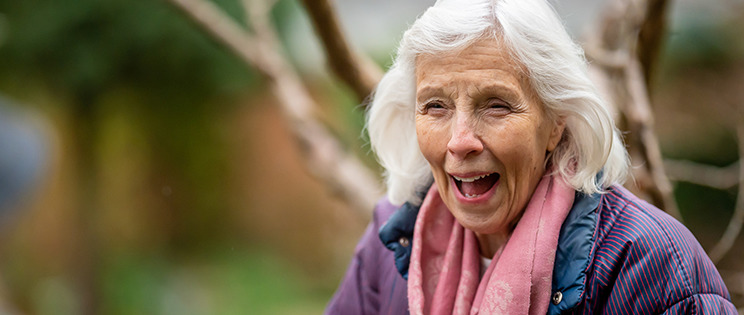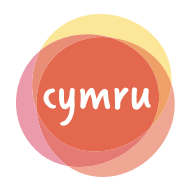Examples of Compassionate Communities in action

Compassionate communities come in all shapes, sizes, cultural backgrounds, they share some features which contribute to their success:
- All have people, whether they’re called community connectors, community catalysts, social prescribers, local area co-ordinators or another title, who work to support individuals in communities to support themselves and each other.
- All have an interest in combating inequities and supporting both those who need help and those who want to help, recognising the importance of a sense of connectedness for wellbeing and living a good life-whatever that may mean to individuals.
- All are interested in identifying and challenging loneliness and social isolation recognising the harms these cause to living people’s good lives.
- All seek to share good practice and build social capital- social resources all members of communities share.
- All recognise the importance of ‘trust, listening and time’ as the foundations of community building.
Here are some examples including one in Wales which we are learning from and building on:
ACE – Action in Caerau and Ely Compassionate Communities
ACE – Action in Caerau & Ely is a community-based charity owned and run by the residents of West Cardiff. We work with our local diverse communities to achieve lasting positive change by co-producing services and activities, using asset-based community development to meet local needs. As a place-based organisation with strong roots in the local community, we aim to bring communities together to be stronger, and enhance the life of each individual.
In April 2020, via a Macmillan Investment Grant, ACE employed a Macmillan Development Officer to explore the development of a community response to death, dying and bereavement. By utilising community development approaches, we hope to increase the availability of compassionate community support for those entering their end of life journey, in particular those who do not yet require intensive at home or hospice palliative care. The overall purpose of the project is to initiate conversations with the public around life-limiting illness, survivorship, dying, death and bereavement. In doing so, ACE hopes to build individual and community resilience, and increase the capacity of local communities to provide the compassion and support that so many need. The project works with community members with the aim of becoming champions of compassion, by enhancing networks, co-creating new opportunities and clearly linking to existing community activities.
Building on learning from The Frome model (see below), this project benefits from running alongside ACE’s ‘YourSpace’ service which provides social prescribing as part of Cardiff South West Primary Care Cluster’s Transformation project to transform the delivery of local health and social care provision. This partnership provides a strong connection between primary care and community development services, allowing Community Wellbeing Connectors to effectively link patients to the vast variety of community resources.
You can learn more about ACE – Action in Caerau and Ely on our website: https://www.aceplace.org
The Frome Model
Dr Julian Abel, Director of Compassionate Communities UK, has been working with the team at Frome Medical Practice since 2016 in implementing and rolling out the Frome Model across the Mendip area of Somerset.
At time when emergency admissions in Somerset rose by 30%, those in Frome reduced by 15%. This is the first intervention that has successfully reduced emergency admissions to hospital across a population and offers the possibility of averting the current crisis in the NHS of increasing admissions to hospital and rising NHS costs. Emergency admissions account for nearly 20% of the £110 billion healthcare budget.
The academic paper describing what happened in Frome was published in the British Journal of General Practice in 2018 https://bjgp.org/content/68/676/e803/tab-article-info
Frome Medical Practice, serving the 28,000 population in Frome and the surrounding area, took the innovative approach of combining a compassionate community programme of community development with routine medical care.
Compassionate communities do not take the place of social care. Rather, they have 3 components.
Through making the most of the supportive networks of family, friends and neighbours, people build care and connectedness, love and laughter, sharing companionship and values. Some of this task is related to caring and some is increasing a sense of belonging in communities.
Building networks of support for the routine matters of life, shopping, cooking, cleaning, looking after the garden and pets, providing lifts. Linking to community activity, such as choir, walking groups, men’s sheds, talking cafes and other interest groups where people can make friendships and share life’s events.
Together, compassionate communities help to reduce isolation and loneliness and bring a sense of belonging into what is sometimes a disconnected society.
Dr Julian Abel, Director of Compassionate Communities UK says:
“Medicine until now has not seen the social relationships domain as part of clinical care. However, it is the most effective intervention we have in improving health and well being across populations. The project in Frome has found a way of making compassionate communities and embedded part of care. The results of doing so are startling.”
You can read more about Frome and compassionate communities on their website:
https://www.compassionate-communitiesuk.co.uk/projects
Compassionate Inverclyde
Compassionate Inverclyde was officially launched on 1 March 2017. The programme aims to enable and empower people to help and support one another in times of increased health need, crisis and bereavement. The role of families, friends and neighbours working alongside formal services is recognised as being crucial to the creation of a compassionate community.
Alison Bunce was inspired by the work of Professor Allan Kellehear whose book Compassionate Cities (Kellehear, 2005) describes a public health vision that involves communities in adopting a compassionate approach to death, dying and loss. The idea for Compassionate Inverclyde was born from that inspiration.
The Programme began initially with No One Dies Alone (NODA) which aims to support people who have no family or friends in the last hours of life. A rota of Volunteer Companions sits makes sure there is always someone with the person until they die to ensure that they do not die alone.
Since its inception, Compassionate Inverclyde has developed and grown organically and the Programme now includes:
Back Home Boxes contain provisions and are gifted to anyone being discharged from Inverclyde Royal Hospital, regardless of age or need, who live alone. The boxes include essential items such as tea, milk, bread, a get-well card made by local school children and a blanket. Local people and community groups knit the blankets. People, businesses, organisations and groups across Inverclyde donate the provisions. This community act of kindness allows recipients to make a hot drink and light snack for a few days allowing them to concentrate on getting better without having to worry about shopping. The volunteers take sole responsibility and organise the Back Home Boxes.
The High Five Programme addresses the five key ways to wellbeing. Alison developed the Programme when she was looking strategically at well-being. It is transferable and can be carried out with any group of people. An emphasis is made on the power of kindness and is delivered over a five week period. The programme has been delivered to pupils at schools across Inverclyde as well as the local college, bereavement groups, public groups, Youth Club and Amazon staff.
Compassionate Inverclyde Support Hub commenced on 29th May 2018 and is a volunteer led support hub. The Hub will be a meeting place for anyone experiencing loneliness, crisis, social isolation and bereavement.
Back Home Visitors will be commencing in October 2018 and is a visitor scheme, which will be based on neighbourliness whereby a visitor and a young person will visit a socially isolated person, aged over eighty who live alone. The idea developed out of learning from the Back Home Boxes which showed that the majority are given to people over eighty who live alone.
Work with Prisons. This will be commencing in autumn 2018. Alison will deliver the High Five Programme and speak with groups of prisoners who would undertake some of this work with the opportunity to open up conversation around Palliative Care and other possible areas of involvement.
The Scottish Government is developing a National Strategy to build connected resilient communities that can tackle the problems of social isolation and loneliness (Scottish Government, 2018). Compassionate Communities help address loneliness and social isolation that very often can affect frail and vulnerable people. The evidence from Compassionate Inverclyde is that it is already having an impact and helping to alleviate pressure on Health and Social Care services as since the inception of the Back Home Boxes, Homecare services have not received any crisis calls.
You can follow Compassionate Inverclyde on Facebook and read more on the website
Compassionate Inverclyde: The creation of a Compassionate Community and Place of Kindness (part 1)
602
The Truacanta Project in Scotland
A recent development which takes forward this approach are the Truacanta projects in Scotland focussed on public health approaches to palliative care.
The focus of a local project and the actions taken will be determined by the community themselves. However, being part of the Truacanta Project will give local community projects access to:
- community development support and advice
- networking and learning opportunities
- support with evaluation
- Community development support
- Community development is a process where people come together to take action on what’s important to them.
- Communities that become part of The Truacanta Project will be able to access community development advice and support over a two year period (April 2020-March 2022). [NB: the project schedule is being revised and will look a little different due to the Coronavirus outbreak.]
The Truacanta Project Manager will help communities to explore how they can best use their community’s assets – the strengths, knowledge, experience, skills and resources existing in their community – to improve people’s experiences of death, dying, loss and care.
The specific support given will be tailored to each project. For example, communities might find it helpful to have support thinking through and planning the project, practical advice on how to get different parts of the community involved, or the opportunity to chat through ways of responding to difficult situations. As well as some face-to-face contact, communities will have ongoing access to support and advice via email and phone. Small amounts of funding may be available to support local development work.
Networking
Communities that join the project will become part of an active Truacanta Project Network, with opportunities to learn from and problem-solve with others in Scotland facing similar challenges.
Evaluation
Evaluation is an important part of the Truacanta Project, and communities involved will receive support evaluating the impact of their work. There are plans to publish evaluations of the Truacanta Project, adding to the international body of literature relating to public health approaches to palliative care.
You can find out more about the Truacanta project here: https://www.goodlifedeathgrief.org.uk/content/thetruacantaproject/




